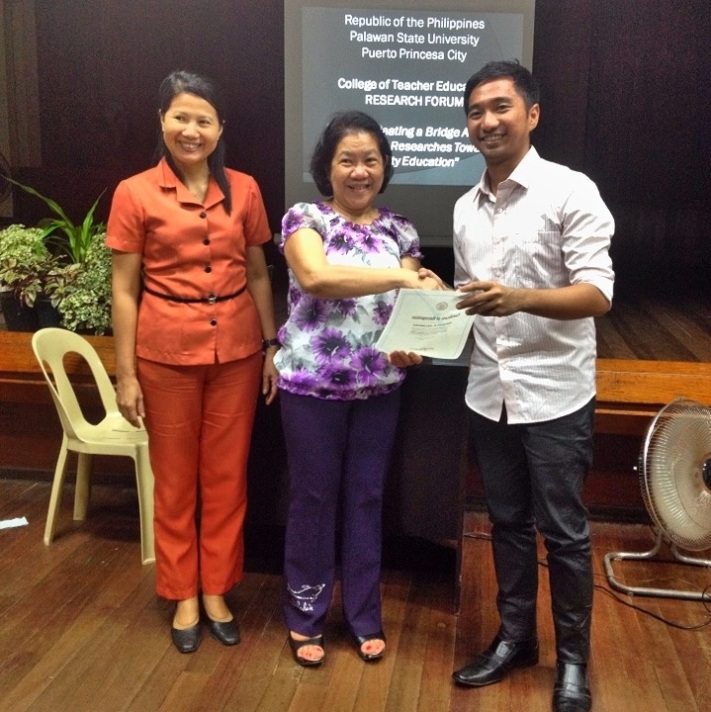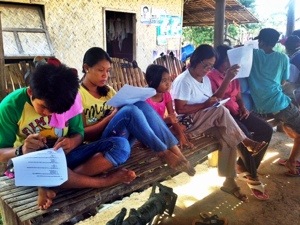London Learnings
- Plant and allow the seed to germinate
- Keep the seed planted by the streams of living water
- Connect to the vine until the fruits are produced
Landed London
SALAMAT, Panginoon!
#UKInvasion #EuroInvasion #TheEdgycator
The promises You made; You cannot tear down, but build up according to your own design. Despite my human limitation, you kept me abreast. Your faithfulness endures me. And I cannot thank you enough but choose you and allow you to use my life.
London, once a dream, once almost in my hand but slipped away, I never thought would be possible again. Ever.
But you made it possible.
I would like to assume that it is a prize for my staying of 9 years with you. Nine imperfect years, yet your love safeguarded and cushioned me, so that I could reach this day, without having given up, without quitting, and without walkinh out on you.
But this isn’t actually a prize. This is part of Your plan for my life. When it seemed I have lost the idea, You showed me how perfect the timing is. Truly, nothing can stop an idea that is ripe for the reaping.
This is it! And all the glory belongs to you. Yes, it is not a prize; but part of my timeline that came ripe for reaping. Because you said so. And because You are sealing a new covenant with me and my life— a covenant that not many would probably understand.
All I know is that through the course of my 13 hours traverse across the airways of Asia and Europe, things I only teach theoretically inside my class, you spoke to me of three things:
1. Encourage your people in London, my brothers and sisters, to stay faithful and committed to Your Name, because the tides of time. Use the development of the seed from being torn apart, to being planted by the streams of living water, and staying connected in the Vine.
2. Search for that possibilty of lifelong learning through the PSOL classes. You showed me a Champion’s Centre Leaderhip College type. You also showed me how London is fresh for a new start. Yes the grand and classical educational institutions are here, thos which have stemmed from Christian traditions but along the way might have changed, like Harvard. This time, as a new spring of life begins, you are embedding in the wide fields of London that revolution in education, once again. A revolution that will start from Your disciples. It is not an accident why the Antioch of Asia , Singapore was able to buy one of the oldest estates, to push for a Bible college. This time, it is the Philippines turn to establish PSol as that training hub for Filipinos and other nationalities to take part in this massive spiritual movement thay is about to sweep again throughout the continent.
3. Reconnection with my dad and sister. You bring families together, no matter how far they are or how disconnected they might be. May it be by physical or emotional distance, you rebuild what is torn down. Hold it here, for I know and understand that for as long as I keep my vows with you, everything will fall into place as You have planned them. Not even the enemy can take a footstool over whay you have established in order. This trip honestly seals the next ten years of our partnership and how you have full ingrained in my mind that the plans of men are futile; Your plans will always prevail. Your plans, by the way, are greater than we can imagine. No eye has seen, no ears has heared what you are about to do, what you are about to pour out. Yes, you are pouring out your spirit upon all flesh. And as carrier of your DNa, we your disciples will be used to channel these pouring over the whole of Europe.
What an honour to be your servant; to use my life solely for your purpose. And yes, by the way, you are right: for anyone who loses his life for You will again have it back.
Thank you Jesus!
DEAR MA’AM/SIR
Reaction to the reading of the same title: Can a civics teacher teach math? There is such a thing called acquired taste. That means, we might not actually like or love something during the first time, but by giving them a chance, we’d like it eventually.
- I realised from this article that students are keen observers and they are the most reliable source of information to improve the teaching-learning process. Example is the guy who mentioned that he cares whether the teacher cares, if the lesson is taught well, or actually taught at all. Next, I learnt that students gestures can be an informative source of how to manage the classroom effectively. Since the teacher is the manager, s/he must be keen that fiddling a pencil case means something, as much as wrinkling of the forehead suggests something. Lastly, I learnt that a teacher is accountable to broaden his/her experiences in order to connect lessons to real life. Vicarious experiences extracted from reading, listening, and viewing also counts well.
- Issues left unclear to me are: how much control the teacher need to exercise inside the classroom; how could an pre- or in-service teacher’s training prepare them to become a holistic teacher who has got preparation, management, passion and significance; and how much content must the teacher teach, when the students could eventually find those themselves when they are trained to become self-directed learners.
- As a student, I used to think that Math is really boring; that strict teachers make the most impact in the lives of students; and that teachers must be well versed with a subject area. But then, I realised even more that Math become boring because the teacher made it so, probably lacking enough experiences to create a reali-life learning context where I could have connected ideas clearly. I realised that really strict teachers make the most impact, though it may take some few years before a student notices it. And lastly, I realised that a teacher need not to focus on one area. As much as the learners are diverse, s/he must also be able to connect information from other disciplines.
- Questions left hanging in my head would probably be about how come the author’s students’ reflection about their teachers exist in the classroom, where in fact those issues could have been outrightly dealt with during college? Does this mean that graduates of teacher education are mentally equipped but lack the due skills of practice when they enter classroom? They are probably theory-laden and substantial, but gets frustrated when the actual scenario extracts the idealism out of them. And so, is that the student/graduate’s fault, or the university, or the age-old education system itself?
- In my 6 years of handling classes, I conducted surveys to improve my craft. When I felt the need to analyse which I am good and weak at, I surveyed my class about the aspects of my teaching. I did it yearly, and I found out interesting perceptions from different cohorts of students I handles. When I felt the need to know what kind of teachers student listen to, I asked my students to interview their schoolmates. I even asked them to observe their other teachers.
- Let me make a critique regarding the pre-service education/training of teachers and the way they are given licensed. Probably not obsolete, but I think it is primeval! While Singapore, for instance, reformed drastically their educational system since 1997 with their Learning Schools, Thinking Nations national framework, ours just started. Talk about an abstract nationalism that hindered our nation, especially our people, to have inclusive opportunities.
- Anyway, as I was saying, teachers’ preparation is largely content knowledge-based. First, the curriculum laden with facts and theories to memorise, but not fully understand or grasp because there is no real-life connection. If there is, it happens during few semesters of college. Second, the items in the licensure examinations may go through all critical levels of knowledge taxonomies, but then again, the measure is entirely knowledge-based. Can a paper actually measure classroom skill that may be enough to merit one a license? And lastly, not all who take teachers education would end up teaching. Economically speaking, that is a whole lot of resources wasted and opportunities missed. That is because, the students enter college early and would only end up deciding what they want to do in life 2 years later or probably more.
My radical idea would have to be devolve to state universities the granting of license for teachers based on a two-year full experience in the ground level: the classroom. This way they get real-life exposure as para-teachers; and they get to be coached and mentored by professional teachers. An assessment will be probably be helpful at the end to see the level of achievement of that teacher. The result shall show an entry-level assessment for schools so they can accommodate well the needs of that teacher or if the strengths of that teacher suit the school’s need. Whatever s/he lacks will later on be dealt with as s/he pursues masteral and doctoral degrees.
CHED issued a memorandum ordering HIEs or SUCs to shift from traditional modes of learning and use outcomes-based education. As early as 2006, DLSU has shifted to this mode; while Mapua Insitute of Technology got a US-based recognition for this. When we put a teacher aspirant into that context of real-life, real workplace scenario where s/he can make sense the content knowledge and theories, before licensed is given, that is outcomes-based.
If we do not reform, we sink because “the education landscape did not change since the colonial days” (Bautista, et. al, 2000). In fact, the results of the 1925 Monroe Survey do not differ with the state of Philippine education in the 1990s.
Reference
Bautista, Ma Cynthia Rose, Allan B.I. Bernardo, and Dina Ocampo. 2000. When Reforms Don’t Transform: Reflections On Institutional Reforms in the Department of Education
Love Your Students
“Love is the not easy. But for teachers who truly want their students to learn, there is no other choice.” So ended the author of the book Dear Teacher on his/her seminal article “Love Your Student.” Knowledge and Love are two important things that teacher must have. “What is your philosophy of teaching,” s/he asked.
- In this article, I learnt that a teacher’s love for students is operationally defined as work—work out knowing and work out loving learning. I learnt that there is always “something new-a new way of approaching teaching and learning.” I learnt that love for students is felt strongly in the most extreme situation as students talking at the top of their voices, going to class without assignments, and totally unappreciative of what teachers are doing. Most of all, I valued my teaching-learning philosophy, even more. I strongly believe that no teacher must be allowed to stand in front of his/her student without a worldview of his/her own; whilst a teacher who holds on a philosophy without changing it must be guillotined.
- I honestly do not have anything I do not clearly understand. I guess the author sums up well the National Competency-Based Teachers’ Standards—knowledge (of curriculum, planning, assessment, and reporting), learning environment that is sensitive to the diversity of learners, and the social regard for learning.
- As a student, I used to think that education is framed by spoonfeeding the textbook content. As a beginning teacher, I struggled teaching to finish the contents of a book in order to quantify learning and justify teaching. And as a person, I used to think that changing my principles in life is changing who I am. So I’d rather not change at all. But then, the article made me reflect on the rudiments of these ideas and how I have changed to be that person the article refers to. As I self-studied about education, joined seminars, workshops, and conferences, downloaded iTune University, TedTalks and other webinars and videoblogs; stuff my player with podcasts on education, I began to realise, teaching is creating your own style in teaching changing contents. The textbook must not define the teacher. The teacher does, as much as he is shaped by his/her context. What quantifies learning and justifies teaching are the learners themselves being considered in the planning, and even them deciding where to begin the teaching-learning experience. Lastly, I could change my principles in teaching, and I can do it as often as possible, with the learners in mind.
- Probably not with the article itself, but I’d like to look into the concepts of knowledge and love. How much amount of knowledge are we to input? How much should be left for the learners to do by themselves? Is love so difficult to actualise in the classroom? Although content knowledge is important, a teacher who has depth and breadth of knowledge is someone who just not propel the top ten into superior level of achievement but also the bottom ten to have a level of achievement where they can have a sense of pride. At that moment they achieve it, it might not be very high, but the progress they made is significant enough for fireworks. I do not think loving learners is difficult. It is hard if you look at teaching as something that puts food in the table; if you look at teaching as a business transaction; mostly when you are not a disciple of christ. It is the last one that makes you love students as you love people, genuinely.
- A good study may focus on evaluating teachers who are already in the field against the NCBTS, and measuring the perception of undergraduates towards NCBTS. The first is to check whether a teacher is aligned or not with the NCBTS; while the second is to imprint the significance of the principles in the NCBTS in the minds of would-be teachers. A survey about teacher’s personal philosophy may also be a good one, and its practice inside the classroom, with actual responses from the students to validate
- As a matter of learning from this text, let me just for a moment. On one hand, if we look into the system of public schools, the upper sections’ needs are met way because the most intelligent teachers are more likely to land there. But that is a minimal percent. Let’s admit that somehow school culture are exclusive, favoring the so-called intellectual sections. Meanwhile, the lower sections are more in number. Aren’t supposed the smart teachers staying teachers in the lower sections and taking the challenge to help these kids gain the confidence in a level of achievement they could be most proud of? Then we ask ourselves, how come we produce substandard HS graduates, not actually fit for college tasks? If the norm lies there and we don’t do something about what data shows, are we not who Einstein refers to when he said insanity is doing the same thing for over 100 years and expecting a different result?
It is not the United States that we must look into in terms of rudimentary school reforms. It is Finland. Topping International assessments like PISA is a feat, but when you learn that they do that unintentionally, be astonished. Finland simply have high achievement through its strong support system: teaching is not just a noble, but highest paid and most respected profession. In fact, the smartest ones becomes the teacher. They do not assign numerical grades but rather checklist and rubrics of student achievements. They do not prepare to test and for test but lifelong learners by exposing students to reading for variety of uses, skills practices not rote memorising contents, and the 21st themes and skills alignment.
Give Praise Sparingly
Consider the book Nurture Shock where the concept of “Raise children’s self-esteem by praising them constantly” is debunked. According to Carol Dweck’s study at Columbia University praise may not be the panacea at all because it made students less risk taking and fearful of committing mistakes. This is a learning-reaction to that
1. First, I learnt that what experts used to say as panacea for students to succeed is now a hoax. If in the 1970s and 1980s, children’s self-esteem were raised by praising them constantly, today calls for a new yardstick. Research evidence of more than 200 studies suggests that more praise merely resulted to bloated egos. Second, I find Dweck’s finding unsurprising, such that, kids who exert consistent efforts outsmart the ‘smart’ or the innately intelligent ones. Weren’t they really smart after all? And third, I learnt that the author does not mean do not praise kids at all, but praise moderately and appropriately. Excessive praise, according to Standfor scholars, backfires into students becoming less persistent in tasks, more eye-checking with the teacher, and using more inflected speech.
2. I do not understand clearly yet why is there a sudden shift of perspective about praise. Could this be a matter of what Thomas Kuhn called the validity of a thesis or scientific conjectures is established by its irrefutability? Could this stem from the intergenerational categorisation: baby boomers, generation X, Y, and Z, i.e., each is characterised by unique traits and must be dealt with a unique approach? I do not understand, yet, the context where too much praise can produce students who avoid risks and lack autonomy.
3. I used to think that praise could boost one’s confidence, that the praise “I believe in you” is the antidote to reticent and laidback children, and that it is all right to create a culture of high expectations for children vis-a-vis stuffing them with praises as some sort of scaffold. But then I realised that praising children excessively may bloat one’s ego too much; that “I believe in you” phrases can be used sparingly to extract its maximizing effect; and that putting students into high pressure environment at an early stage could rob them off early of their childhood. There is such things as ‘level-appropriate’ and ‘age-appropriate’ teaching-learning.
4. I do not see clearly how the research of psychologist Carol Dweck from Columbia University and the article “The Inverse Power of Praise” published by Po Bronson and Ashley Marryman could impact directly the state of Filipino parents in children? Is the concept of withholding praise applicable to a society and culture, like ours? Or must there be a different approach? Typically, a Filipino’s reaction towards praise is a ‘hindi naman’ or a ‘medyo’ lang.
5. A good study would probably be an experimental one, where one group will be given moderate levels of praise, while the other will not be given anything at all. This is to prove the hypothesis, “Too much praise can be bad.” Another one would probably be a study focused on the the effects of praise to academically inclined students or the grade conscious (GC). Semi-structured interview or focused group discussion can be conducted before them to find out if praise have made them fearful of committing mistake, less risk-taking, used inflected speech (answers have intonation of questions) too often, very competitive, and resort to cheating, if needed. That could be aptly titled, “The Making of a Grade Conscious and How Teachers Play as the Culprit: What Excessive Praises Can Do?”
6. I learnt from this article that contextualising praise is very important, but taking the study’s implication as a god is a form of neocolonialism. Their context is different from ours. New York is different from Manila; Manila’s is slightly different from Palawan. The amount of praise to give may still be relative to the context. The collective space where New Yorker children live may be enough to boost their confidence, compared to children here, who because of poverty, may not have that confidence in the first place.
I learnt also that this may not be a question of praise at all, but a question of grading in the context of Philippine schools. Here, the need for praise stems not to measure learning and achievement but to increase a grade in order for a child to pass. To say that a child gets 75 or 95 makes no difference if the child is motivated to get that grade more than to learn a concept or a skill. What motivates that praise? we should be keen with our intention, often we miss out on learning because the grade is a god-panacaea. Teach to grade or Teach to learn?
If we look into grades as motivation of giving praise, we see that grades have values because of their necessity as a driver for students to strive inside the classroom. Unfortunately, even if tons of studies suggest its demeaning and dehumanising effect to the child, its parting the-red-sea tendency to create social division in the class: the brainy and the imbecile, schools have not significantly reformed itself. Even the K+12 has numerical value still, when the letter grade could be use to measure achievement not in a whole set skill but specific skills a child may need to focus on at a particular moment of his learning and development.
#SelfieGen
A critique to an article entitled The Me Generation, where the author contends based on a study that children and teenagers nowadays are unlike the previous generations. They ‘seem to be rude, but are actually polite. And that’s not even a flinch of irony.’
- I learned some concepts the author presented about today’s children—That children and teenagers (1) are becoming spoiled, rude, and selfish, expecting but never trying their best; (2) believe that they deserve their fair share, even if it may mean getting more than other people; and finally, (3) seems rude on the surface, but is perfectly polite, even that direct opposite is not an irony.
- I do not understand well the intention of the author. Probably, s/he’s bridging the intergenerational gap. Is s/he predisposed to make his/her readers understand the children today? If so, she appeared to have contradicted him/herself in a number of times. More so, I do not understand that after the flesh-whipping descriptions clouted in statistics, s/he proceeded by telling, it is not the Gen Me’ers fault, but the prevailing culture. Prevailing culture? I do not understand why s/he has to deconstruct the Gen Me’ers first, yet to build it up again. Is this what Twenge calls, ‘kids raised on a diet of self-esteem’?
- I used to think that Britney has simply wasted here life, that children today just lacked spending quality time and love from their parents, and that they lacked grit and resiliency in face of adversity. But then I realised that although Britney played the victim role with all her divorces, she manifests a great and firm resolve, no matter what it takes, to achieve her priority, i.e., “Myself, my husband, and starting a family.” She’s very certain about what she wants in life; and she ought to get it. I realised that children today might have missed on spending quality time with their parents, but they were raised in silver platter. Good enough to build that ‘army of little narcissists.’ And finally, I realised that although children today lack grit and resiliency, or patience, that is because there is a gap between the adults’ perception of who they are and where they should be, and the trend that leads this children to their future, they are the generation who are certain of what they want to do, no matter how the rest perceive it otherwise. Fact of the matter is, even the adults do not understand that world. That world they themselves created.
- I do not understand why the author call this generation as the entitlement generation? Why s/he blamed the prevailing culture for raising these kind of kids? Couldn’t all this be an offshoot of what happened to the lives of those who were born in the 1950-60s? In fact, what that generation didn’t own to lead, ricochet back at them. The author presented Gen Me’ers swinging on both extreme ends of a pendulum, what could have led to this seemingly bipolaric tendecies?
- On one hand, I think it will be important to explore the lives of artists who made it when they were still young like Britney Spears, Aliyah, Backstreet Boys, and the more contemporary Paris Hilton, Lady Gaga, and the contoversial “tweaker” Miley Cyrus. It will be helpful to look at the context where they grew up, who were their influences, and the quality of their relationships with the adults surrounding them, especially their parents. On the other hand, I am also interested in documenting how the parents of the Gen Me’ers perceived where their parenting have gone wrong, and how the Gen Me’ers perceived where their parents have gone wrong in raising them up. This is to build upon an awareness that probably it is not merely about mass media or pop culture, but the lack or absence of quality time between parents and the children. Proof to this will be the answer to this question: “When was the last time that you dine with your family together on one table, with the kids not opening their iPhones or iPads?”
- Going back to the questions I have in my mind, I think the blame game won’t get into a halt unless we understand the context where the children born between 1970s-2000s. Isn’t that the generation where fathers left their families to seek greener pasteurs abroad; women (single or not) began climbing the corporate ladder; children left either with an un-schooled yaya or age-of-war-raised grandparents; and to make matters worse, children jammed with 49 others inside a humid room with a greying old teacher who failed to ride into the waves of change, favors a hefty upper 10% of the class? What happends to the 90%? And we wonder why there are more morons in our society, why the ‘A’ students work for the ‘C’ students, and ‘B’ for the government, why gays are multiplying faster, and why ironically we are seated where we are, but actually wanting another place? According to the principle of brain plasticity, what you do not use, you lose. In the case of this, when the previous generation, in hopes to find a better life, sacrificed quality time with their children, they lost that group of young people whom today are called, the Gen Me’er, or aptly, the Selfie generation.
Research lives on
Had jitters when I presented this 2-week paper about my school. Particularly, I shared the 21st century skills crossroads and their perception about their awareness of the terms and concepts related to 21st century learning themes and skills.
This is an honor and privilege, mindsharing with the principal of PSU laboratory high school before the research directors and dean of college of teacher education.
I loved it, because this is what I wanted to do in the first place. And I owe it to my God to harness this gift.
So there I shared that most of our teachers know about and are aware of the skills we are committed to train our students, as part of our school improvement journey.
Training of the teachers this summer will focus on differentiated instruction, technology integration, speaking in the content areas.
It is part of curriculum mapping we are doing this summer, with unit focus on the 5 21st century learning themes:
1. health literacy
2. civic literacy
3. financial literacy
4. global awareness
5. environmental awareness
Excited, to mindshare here what ate about to happen.
Thesis Writing
High School research papers are fun to write. We call them baby thesis. Fourth year students writing them are not bereft of any valuable find. For panelists like us, it brings moments of ‘aha’ and ‘that was good.’
This year’s products would make any teacher proud. Thanks to the teachers who brought them here to this level.
Some interesting finds this yeae:
1. LC teachers are proactive when it comes to coping with curriculum innovation
2. LC students are more keen to become entrepreneurs, NCAE revealed.
3. LC students develop problem-solving skills through the STREAMS. On top is discipline and being calm.
4. LC students say that English speaking can boost their confidence but most of the time they are afraid to commit mistake
5. Mathscore has a variety of uses but sometimes students allow others to use their account
Edgycator Goes to Tagbarungis
My Sunday afties are blocked.
Help, I didn’t like that idea until the moment I immersed myself in the actual situation of leaving my city comfort zone to mile my way to a rural area.
The mission: go to and fro Tagbarungis, a sitio in barangay Inagawan sub, for ten weeks to conduct a Literacy Course focusing on Reading skills.
I am really not the kind of person who will go the extra mile doing this kind of thing alone. So, thank to the revised Palawan State University vision and to my Educational Planning class under Dr Manarpaac, we are now required to produce mini-research or action research papers, and extension service learning, like this.
Not that I am complaining. I think this is really productive. It gives balance to what I do. The every Sunday trip is kind of giving me a break from a 7-yeat routine. The best thing is that I am doing this now. Yehey!
Today, I and my classmate Ruth Pedoy gave out our pretest to determine our students’ strengths and weaknesses on the following areas:
1. identifying main ideas
2. noting details
3. sequencing events in a story
4. determining cause and effects
5. drawing conclusions
6. decoding word meaning thru context clues
We are using (and testing) three modules of the Department of Education’s Effective Alternative Secondary Education for this reading classes. Our aim is to prepare them for the ALS assessment this coming March. Should thy take it, their year level will be determined, go through the Alternative High School programme, and get the chance of their lifetime: proceed to college ot technical-vocational school.
At the end of the course, our 25 students, of diverse age, learning backgrouds, but of similar social statues, will have better chances to upgrade their life thru education, depending how they respond to the hierarchical progression of schooling.
But they must start somewhere. And that is here.







